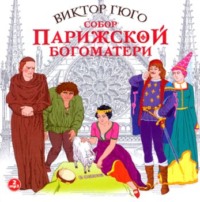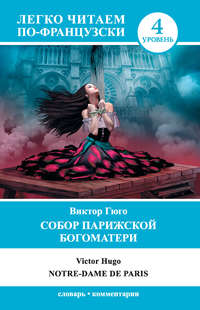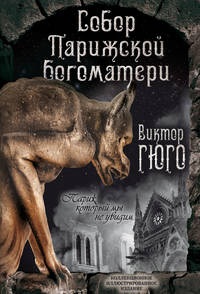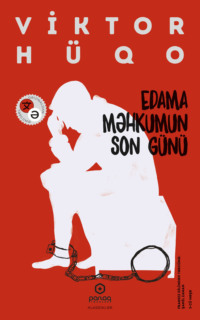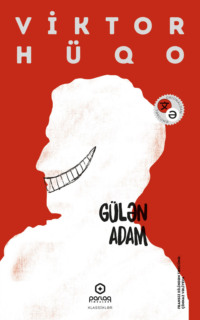Poems
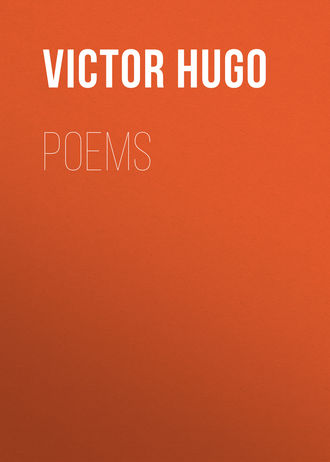 полная версия
полная версияPoems
Язык: Английский
Год издания: 2017
Добавлена:
Настройки чтения
Размер шрифта
Высота строк
Поля
MADELAINE
("Ecoute-moi, Madeline.")
{IX., September, 1825.}
List to me, O Madelaine! Now the snows have left the plain, Which they warmly cloaked. Come into the forest groves, Where the notes that Echo loves Are from horns evoked. Come! where Springtide, Madelaine, Brings a sultry breath from Spain, Giving buds their hue; And, last night, to glad your eye, Laid the floral marquetry, Red and gold and blue. Would I were, O Madelaine, As the lamb whose wool you train Through your tender hands. Would I were the bird that whirls Round, and comes to peck your curls, Happy in such bands. Were I e'en, O Madelaine, Hermit whom the herd disdain In his pious cell, When your purest lips unfold Sins which might to all be told, As to him you tell. Would I were, O Madelaine, Moth that murmurs 'gainst your pane, Peering at your rest, As, so like its woolly wing, Ceasing scarce its fluttering, Heaves and sinks your breast. If you seek it, Madelaine, You may wish, and not in vain, For a serving host, And your splendid hall of state Shall be envied by the great, O'er the Jew-King's boast. If you name it, Madelaine, Round your head no more you'll train Simple marguerites, No! the coronet of peers, Whom the queen herself oft fears, And the monarch greets. If you wish, O Madelaine! Where you gaze you long shall reign — For I'm ruler here! I'm the lord who asks your hand If you do not bid me stand Loving shepherd here!THE FAY AND THE PERI
("Où vas-tu donc, jeune âme.")
{XV.}
THE PERI
Beautiful spirit, come with me Over the blue enchanted sea: Morn and evening thou canst play In my garden, where the breeze Warbles through the fruity trees; No shadow falls upon the day: There thy mother's arms await Her cherished infant at the gate. Of Peris I the loveliest far — My sisters, near the morning star, In ever youthful bloom abide; But pale their lustre by my side — A silken turban wreathes my head, Rubies on my arms are spread, While sailing slowly through the sky, By the uplooker's dazzled eye Are seen my wings of purple hue, Glittering with Elysian dew. Whiter than a far-off sail My form of beauty glows, Fair as on a summer night Dawns the sleep star's gentle light; And fragrant as the early rose That scents the green Arabian vale, Soothing the pilgrim as he goes. THE FAY. Beautiful infant (said the Fay), In the region of the sun I dwell, where in a rich array The clouds encircle the king of day, His radiant journey done. My wings, pure golden, of radiant sheen (Painted as amorous poet's strain), Glimmer at night, when meadows green Sparkle with the perfumed rain While the sun's gone to come again. And clear my hand, as stream that flows; And sweet my breath as air of May; And o'er my ivory shoulders stray Locks of sunshine; – tunes still play From my odorous lips of rose. Follow, follow! I have caves Of pearl beneath the azure waves, And tents all woven pleasantly In verdant glades of Faëry. Come, belovèd child, with me, And I will bear thee to the bowers Where clouds are painted o'er like flowers, And pour into thy charmed ear Songs a mortal may not hear; Harmonies so sweet and ripe As no inspired shepherd's pipe E'er breathed into Arcadian glen, Far from the busy haunts of men. THE PERI. My home is afar in the bright Orient, Where the sun, like a king, in his orange tent, Reigneth for ever in gorgeous pride — And wafting thee, princess of rich countree, To the soft flute's lush melody, My golden vessel will gently glide, Kindling the water 'long the side. Vast cities are mine of power and delight, Lahore laid in lilies, Golconda, Cashmere; And Ispahan, dear to the pilgrim's sight, And Bagdad, whose towers to heaven uprear; Alep, that pours on the startled ear, From its restless masts the gathering roar, As of ocean hamm'ring at night on the shore. Mysore is a queen on her stately throne, Thy white domes, Medina, gleam on the eye, — Thy radiant kiosques with their arrowy spires, Shooting afar their golden fires Into the flashing sky, — Like a forest of spears that startle the gaze Of the enemy with the vivid blaze. Come there, beautiful child, with me, Come to the arcades of Araby, To the land of the date and the purple vine, Where pleasure her rosy wreaths doth twine, And gladness shall be alway thine; Singing at sunset next thy bed, Strewing flowers under thy head. Beneath a verdant roof of leaves, Arching a flow'ry carpet o'er, Thou mayst list to lutes on summer eves Their lays of rustic freshness pour, While upon the grassy floor Light footsteps, in the hour of calm, Ruffle the shadow of the palm. THE FAY. Come to the radiant homes of the blest, Where meadows like fountain in light are drest, And the grottoes of verdure never decay, And the glow of the August dies not away. Come where the autumn winds never can sweep, And the streams of the woodland steep thee in sleep, Like a fond sister charming the eyes of a brother, Or a little lass lulled on the breast of her mother. Beautiful! beautiful! hasten to me! Colored with crimson thy wings shall be; Flowers that fade not thy forehead shall twine, Over thee sunlight that sets not shall shine. The infant listened to the strain, Now here, now there, its thoughts were driven — But the Fay and the Peri waited in vain, The soul soared above such a sensual gain — The child rose to Heaven.Asiatic JournalLES ORIENTALES. – 1829.
THE SCOURGE OF HEAVEN
("Là, voyez-vous passer, la nuée.")
{I., November, 1828.}
I Hast seen it pass, that cloud of darkest rim? Now red and glorious, and now gray and dim, Now sad as summer, barren in its heat? One seems to see at once rush through the night The smoke and turmoil from a burning site Of some great town in fiery grasp complete. Whence comes it? From the sea, the hills, the sky? Is it the flaming chariot from on high Which demons to some planet seem to bring? Oh, horror! from its wondrous centre, lo! A furious stream of lightning seems to flow Like a long snake uncoiling its fell ring.II The sea! naught but the sea! waves on all sides! Vainly the sea-bird would outstrip these tides! Naught but an endless ebb and flow! Wave upon wave advancing, then controlled Beneath the depths a stream the eyes behold Rolling in the involved abyss below! Whilst here and there great fishes in the spray Their silvery fins beneath the sun display, Or their blue tails lash up from out the surge, Like to a flock the sea its fleece doth fling; The horizon's edge bound by a brazen ring; Waters and sky in mutual azure merge. "Am I to dry these seas?" exclaimed the cloud. "No!" It went onward 'neath the breath of God.III Green hills, which round a limpid bay Reflected, bask in the clear wave! The javelin and its buffalo prey, The laughter and the joyous stave! The tent, the manger! these describe A hunting and a fishing tribe Free as the air – their arrows fly Swifter than lightning through the sky! By them is breathed the purest air, Where'er their wanderings may chance! Children and maidens young and fair, And warriors circling in the dance! Upon the beach, around the fire, Now quenched by wind, now burning higher, Like spirits which our dreams inspire To hover o'er our trance. Virgins, with skins of ebony, Beauteous as evening skies, Laughed as their forms they dimly see In metal mirrors rise; Others, as joyously as they, Were drawing for their food by day, With jet-black hands, white camels' whey, Camels with docile eyes. Both men and women, bare, Plunged in the briny bay. Who knows them? Whence they were? Where passed they yesterday? Shrill sounds were hovering o'er, Mixed with the ocean's roar, Of cymbals from the shore, And whinnying courser's neigh. "Is't there?" one moment asked the cloudy mass; "Is't there?" An unknown utterance answered: "Pass!"IV Whitened with grain see Egypt's lengthened plains, Far as the eyesight farthest space contains, Like a rich carpet spread their varied hues. The cold sea north, southwards the burying sand Dispute o'er Egypt – while the smiling land Still mockingly their empire does refuse. Three marble triangles seem to pierce the sky, And hide their basements from the curious eye. Mountains – with waves of ashes covered o'er! In graduated blocks of six feet square From golden base to top, from earth to air Their ever heightening monstrous steps they bore. No scorching blast could daunt the sleepless ken Of roseate Sphinx, and god of marble green, Which stood as guardians o'er the sacred ground. For a great port steered vessels huge and fleet, A giant city bathed her marble feet In the bright waters round. One heard the dread simoom in distance roar, Whilst the crushed shell upon the pebbly shore Crackled beneath the crocodile's huge coil. Westwards, like tiger's skin, each separate isle Spotted the surface of the yellow Nile; Gray obelisks shot upwards from the soil. The star-king set. The sea, it seemed to hold In the calm mirror this live globe of gold, This world, the soul and torchbearer of our own. In the red sky, and in the purple streak, Like friendly kings who would each other seek, Two meeting suns were shown. "Shall I not stop?" exclaimed the impatient cloud. "Seek!" trembling Tabor heard the voice of God.V Sand, sand, and still more sand! The desert! Fearful land! Teeming with monsters dread And plagues on every hand! Here in an endless flow, Sandhills of golden glow, Where'er the tempests blow, Like a great flood are spread. Sometimes the sacred spot Hears human sounds profane, when As from Ophir or from Memphre Stretches the caravan. From far the eyes, its trail Along the burning shale Bending its wavering tail, Like a mottled serpent scan. These deserts are of God! His are the bounds alone, Here, where no feet have trod, To Him its centre known! And from this smoking sea Veiled in obscurity, The foam one seems to see In fiery ashes thrown. "Shall desert change to lake?" cried out the cloud. "Still further!" from heaven's depths sounded that Voice aloud.VI Like tumbled waves, which a huge rock surround; Like heaps of ruined towers which strew the ground, See Babel now deserted and dismayed! Huge witness to the folly of mankind; Four distant mountains when the moonlight shined Seem covered with its shade. O'er miles and miles the shattered ruins spread Beneath its base, from captive tempests bred, The air seemed filled with harmony strange and dire; While swarmed around the entire human race A future Babel, on the world's whole space Fixed its eternal spire. Up to the zenith rose its lengthening stair, While each great granite mountain lent a share To form a stepping base; Height upon height repeated seemed to rise, For pyramid on pyramid the strainèd eyes Saw take their ceaseless place. Through yawning walls huge elephants stalked by; Under dark pillars rose a forestry, Pillars by madness multiplied; As round some giant hive, all day and night, Huge vultures, and red eagles' wheeling flight Was through each porch descried. "Must I complete it?" said the angered cloud. "On still!" "Lord, whither?" groaned it, deep not loud.VII Two cities, strange, unknown in history's page, Up to the clouds seemed scaling, stage by stage, Noiseless their streets; their sleeping inmates lie, Their gods, their chariots, in obscurity! Like sisters sleeping 'neath the same moonlight, O'er their twin towers crept the shades of night, Whilst scarce distinguished in the black profound, Stairs, aqueducts, great pillars, gleamed around, And ruined capitals: then was seen a group Of granite elephants 'neath a dome to stoop, Shapeless, giant forms to view arise, Monsters around, the spawn of hideous ties! Then hanging gardens, with flowers and galleries: O'er vast fountains bending grew ebon-trees; Temples, where seated on their rich tiled thrones, Bull-headed idols shone in jasper stones; Vast halls, spanned by one block, where watch and stare Each upon each, with straight and moveless glare, Colossal heads in circles; the eye sees Great gods of bronze, their hands upon their knees. Sight seemed confounded, and to have lost its powers, 'Midst bridges, aqueducts, arches, and round towers, Whilst unknown shapes fill up the devious views Formed by these palaces and avenues. Like capes, the lengthening shadows seem to rise Of these dark buildings, pointed to the skies, Immense entanglement in shroud of gloom! The stars which gleamed in the empyrean dome, Under the thousand arches in heaven's space Shone as through meshes of the blackest lace. Cities of hell, with foul desires demented, And monstrous pleasures, hour by hour invented! Each roof and home some monstrous mystery bore! Which through the world spread like a twofold sore! Yet all things slept, and scarce some pale late light Flitted along the streets through the still night, Lamps of debauch, forgotten and alone, The feast's lost fires left there to flicker on; The walls' large angles clove the light-lengthening shades 'Neath the white moon, or on some pool's face played. Perchance one heard, faint in the plain beneath, The kiss suppressed, the mingling of the breath; And the two sister cities, tired of heat, In love's embrace lay down in murmurs sweet! Whilst sighing winds the scent of sycamore From Sodom to Gomorrah softly bore! Then over all spread out the blackened cloud, "'Tis here!" the Voice on high exclaimed aloud.VIII From a cavern wide In the rent cloud's side, In sulphurous showers The red flame pours. The palaces fall In the lurid light, Which casts a red pall O'er their facades white! Oh, Sodom! Gomorrah! What a dome of horror Rests now on your walls! On you the cloud falls, Nation perverse! On your fated heads, From its fell jaws, a curse Its lightning fierce spreads! The people awaken Which godlessly slept; Their palaces shaken, Their offences unwept! Their rolling cars all Meet and crash in the street; And the crowds, for a pall, Find flames round their feet! Numberless dead, Round these high towers spread, Still sleep in the shade By their rugged heights made; Colossi of rocks In ill-steadied blocks! So hang on a wall Black ants, like a pall! To escape is in vain From this horrible rain! Alas! all things die; In the lightning's red flash The bridges all crash; 'Neath the tiles the flame creeps; From the fire-struck steeps Falls on the pavements below, All lurid in glow, Rolling down from on high! Beneath every spark, The red, tyrannous fire Mounts up in the dark Ever redder and higher; More swiftly than steed Uncontrolled, see it pass! Horrid idols all twist, By the crumbling flame kissed In their infamous dread, Shrivelled members of brass! It grows angry, flows on, Silver towers fall down Unforeseen, like a dream In its green and red stream, Which lights up the walls Ere one crashes and falls, Like the changeable scale Of a lizard's bright mail. Agate, porphyry, cracks And is melted to wax! Bend low to their doom These stones of the tomb! E'en the great marble giant Called Nabo, sways pliant Like a tree; whilst the flare Seemed each column to scorch As it blazed like a torch Round and round in the air. The magi, in vain, From the heights to the plain Their gods' images carry In white tunic: they quake — No idol can make The blue sulphur tarry; The temple e'en where they meet, Swept under their feet In the folds of its sheet! Turns a palace to coal! Whence the straitened cries roll From its terrified flock; With incendiary grips It loosens a block, Which smokes and then slips From its place by the shock; To the surface first sheers, Then melts, disappears, Like the glacier, the rock! The high priest, full of years, On the burnt site appears, Whence the others have fled. Lo! his tiara's caught fire As the furnace burns higher, And pale, full of dread, See, the hand he would raise To tear his crown from the blaze Is flaming instead! Men, women, in crowds Hurry on – the fire shrouds And blinds all their eyes As, besieging each gate Of these cities of fate To the conscience-struck crowd, In each fiery cloud, Hell appears in the skies!IX Men say that then, to see his foe's sad fall As some old prisoner clings to his prison wall, Babel, accomplice of their guilt, was seen O'er the far hills to gaze with vision keen! And as was worked this dispensation strange, A wondrous noise filled the world's startled range; Reached the dull hearing that deep, direful sound Of their sad tribe who live below the ground.X 'Gainst this pitiless flame who condemned could prevail? Who these walls, burnt and calcined, could venture to scale? Yet their vile hands they sought to uplift, Yet they cared still to ask from what God, by what law? In their last sad embrace, 'midst their honor and awe, Of this mighty volcano the drift. 'Neath great slabs of marble they hid them in vain, 'Gainst this everliving fire, God's own flaming rain! 'Tis the rash whom God seeks out the first; They call on their gods, who were deaf to their cries, For the punishing flame caused their cold granite eyes In tears of hot lava to burst! Thus away in the whirlwind did everything pass, The man and the city, the soil and its grass! God burnt this sad, sterile champaign; Naught living was left of this people destroyed, And the unknown wind which blew over the void, Each mountain changed into a plain.XI The palm-tree that grows on the rock to this day, Feels its leaf growing yellow, its slight stem decay, In the blasting and ponderous air; These towns are no more! but to mirror their past, O'er their embers a cold lake spread far and spread fast, With smoke like a furnace, lies there!J.N. FAZAKERLEYPIRATES' SONG
("Nous emmenions en esclavage.")
{VIII., March, 1828.}
We're bearing fivescore Christian dogs To serve the cruel drivers: Some are fair beauties gently born, And some rough coral-divers. We hardy skimmers of the sea Are lucky in each sally, And, eighty strong, we send along The dreaded Pirate Galley. A nunnery was spied ashore, We lowered away the cutter, And, landing, seized the youngest nun Ere she a cry could utter; Beside the creek, deaf to our oars, She slumbered in green alley, As, eighty strong, we sent along The dreaded Pirate Galley. "Be silent, darling, you must come — The wind is off shore blowing; You only change your prison dull For one that's splendid, glowing! His Highness doats on milky cheeks, So do not make us dally" — We, eighty strong, who send along The dreaded Pirate Galley. She sought to flee back to her cell, And called us each a devil! We dare do aught becomes Old Scratch, But like a treatment civil, So, spite of buffet, prayers, and calls — Too late her friends to rally — We, eighty strong, bore her along Unto the Pirate Galley. The fairer for her tears profuse, As dews refresh the flower, She is well worth three purses full, And will adorn the bower — For vain her vow to pine and die Thus torn from her dear valley: She reigns, and we still row along The dreaded Pirate Galley.THE TURKISH CAPTIVE
("Si je n'était captive.")
{IX., July, 1828.}
Oh! were I not a captive, I should love this fair countree; Those fields with maize abounding, This ever-plaintive sea: I'd love those stars unnumbered, If, passing in the shade, Beneath our walls I saw not The spahi's sparkling blade. I am no Tartar maiden That a blackamoor of price Should tune my lute and hold to me My glass of sherbet-ice. Far from these haunts of vices, In my dear countree, we With sweethearts in the even May chat and wander free. But still I love this climate, Where never wintry breeze Invades, with chilly murmur, These open lattices; Where rain is warm in summer, And the insect glossy green, Most like a living emerald, Shines 'mid the leafy screen. With her chapelles fair Smyrna — A gay princess is she! Still, at her summons, round her Unfading spring ye see. And, as in beauteous vases, Bright groups of flowers repose, So, in her gulfs are lying Her archipelagoes. I love these tall red turrets; These standards brave unrolled; And, like an infant's playthings, These houses decked with gold. I love forsooth these reveries, Though sandstorms make me pant, Voluptuously swaying Upon an elephant. Here in this fairy palace, Full of such melodies, Methinks I hear deep murmurs That in the deserts rise; Soft mingling with the music The Genii's voices pour, Amid the air, unceasing, Around us evermore. I love the burning odors This glowing region gives; And, round each gilded lattice, The trembling, wreathing leaves; And, 'neath the bending palm-tree, The gayly gushing spring; And on the snow-white minaret, The stork with snowier wing. I love on mossy couch to sing A Spanish roundelay, And see my sweet companions Around commingling gay, — A roving band, light-hearted, In frolicsome array, — Who 'neath the screening parasols Dance down the merry day. But more than all enchanting At night, it is to me, To sit, where winds are sighing, Lone, musing by the sea; And, on its surface gazing, To mark the moon so fair, Her silver fan outspreading, In trembling radiance there.W.D., Tait's Edin. MagazineMOONLIGHT ON THE BOSPHORUS
("La lune était sereine.")
{X., September, 1828.}
Bright shone the merry moonbeams dancing o'er the wave; At the cool casement, to the evening breeze flung wide, Leans the Sultana, and delights to watch the tide, With surge of silvery sheen, yon sleeping islets lave. From her hand, as it falls, vibrates the light guitar. She listens – hark! that sound that echoes dull and low. Is it the beat upon the Archipelago Of some long galley's oar, from Scio bound afar? Is it the cormorants, whose black wings, one by one, Cut the blue wave that o'er them breaks in liquid pearls? Is it some hovering sprite with whistling scream that hurls Down to the deep from yon old tower a loosened stone? Who thus disturbs the tide near the seraglio? 'Tis no dark cormorants that on the ripple float, 'Tis no dull plume of stone – no oars of Turkish boat, With measured beat along the water creeping slow. 'Tis heavy sacks, borne each by voiceless dusky slaves; And could you dare to sound the depths of yon dark tide, Something like human form would stir within its side. Bright shone the merry moonbeams dancing o'er the wave.JOHN L. O'SULLIVAN.

